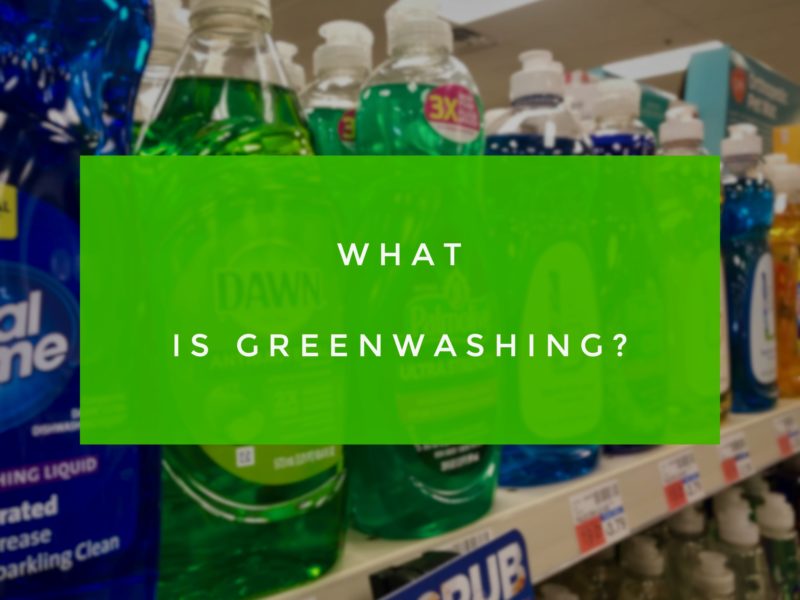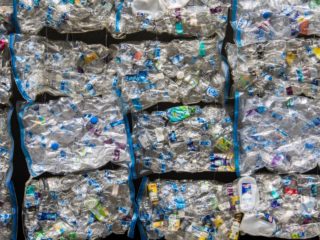What is greenwashing? You’ve heard the term before, but do you really know what it means? More importantly, how do you avoid being greenwashed?
Table of Contents
What is Greenwashing?
So … what is greenwashing? In simple terms, the act of greenwashing is a manufacturer’s attempt to create the impression, through deceptive marketing efforts, that a product is natural or has environmental benefits, even when it doesn’t. The goal is to divert the customer’s attention away from a company’s environmentally egregious record by amplifying a trivial green accomplishment.
Not only does greenwashing deflect attention away from shoddy environmental practices, but it also prioritizes superficial green initiatives over substantive practices that place sustainability in every step of the supply chain.
The term, “greenwashing,” was first used by Jay Westerveld, an environmental activist who, while on vacation, noted the hypocrisy of a hotel’s entreaties to guests to reuse their towels as a way to “save the planet,” even though the hotel chain was engaging in environmentally destructive activities. Westerveld expanded upon his observations in a 1986 essay, calling the hotel industry to task for its flimsy environmental claims that were designed to mislead the public.
Greenwashing tactics can be found in all industries and sectors. A 2010 study of green-marketed products found that 95% of the nearly 5,000 products surveyed used some form of greenwashing. And although the term was coined in 1986, greenwashing schemes have been employed by businesses and organizations for decades.
Avoid Being Greenwashed! Here’s How
Now that you have an idea of what is greenwashing, how do you tell whether a product or company is truly green?
Do Your Homework: Independent Certifications and Guides
In the U.S., the burden in assessing the reputability of a product rests primarily with the consumer. So before you purchase something new, do a bit of digging about the product, ingredients, and manufacturer.
There are several government agencies and reputable certification organizations to help you make informed purchases. Seeing one or more of these labels on a product gives it a stamp of environmental legitimacy.
General
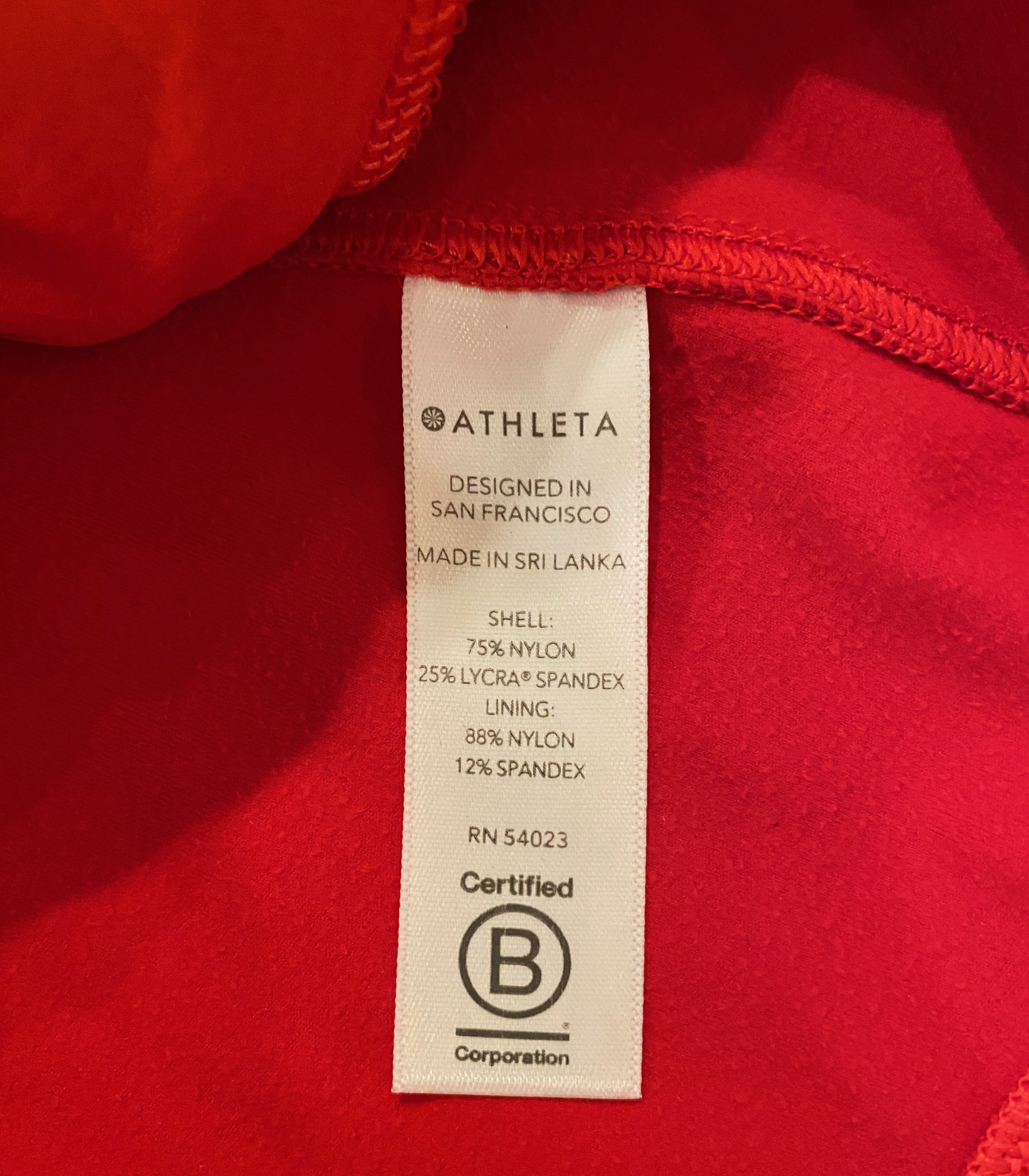
- B Corporation Certification designates businesses that meet the highest standards of verified social and environmental performance.
- Climate Neutral Certification label is a globally-recognized standard for carbon accountability. Certification signifies that a company is working to reduce the greenhouse gas emissions from making and delivering its products and services – and compensates for all of them, every year. Searchable lists of Certified and Committed brands are included on the site.
- The Carbon Trust Standard recognizes organizations that demonstrate leadership in measuring, managing, and reducing their environmental impact. It includes a full list of certified organizations (“Standard Bearers”).
- EPA’s ENERGY STAR® is the government-backed symbol for energy efficiency, providing simple, credible, and unbiased information that consumers can rely on to make well-informed decisions. ENERGY STAR page lists numerous approved products, including electronics, office equipment, lighting, and heating and cooling equipment.
- EPA Safer Choice Label. Companies with the Safer Choice label have invested heavily in research and reformulation to ensure that their products meet the Safer Choice Standard. These companies are leaders in safer products and sustainability.
- Fair Trade Certified Mark is the certification method most commonly used in the U.S. and Canada. The Fair Trade Certified website includes a searchable database for certified products.
- Forest Steward Council certification ensures that products come from responsibly managed forests that provide environmental, social, and economic benefits.
- Global Ecolabelling Network (GEN) is a non-profit association of leading ecolabelling organizations worldwide. Environmentally friendly products and services proven to have a lower environmental impact may carry a GEN member ecolabel.
- Wherefrom is a sustainability review platform that scores companies and products based on their sustainability practices. Consumers can search for products and brands and are encouraged to provide their own reviews of purchased products.
Cleaning and Home Products
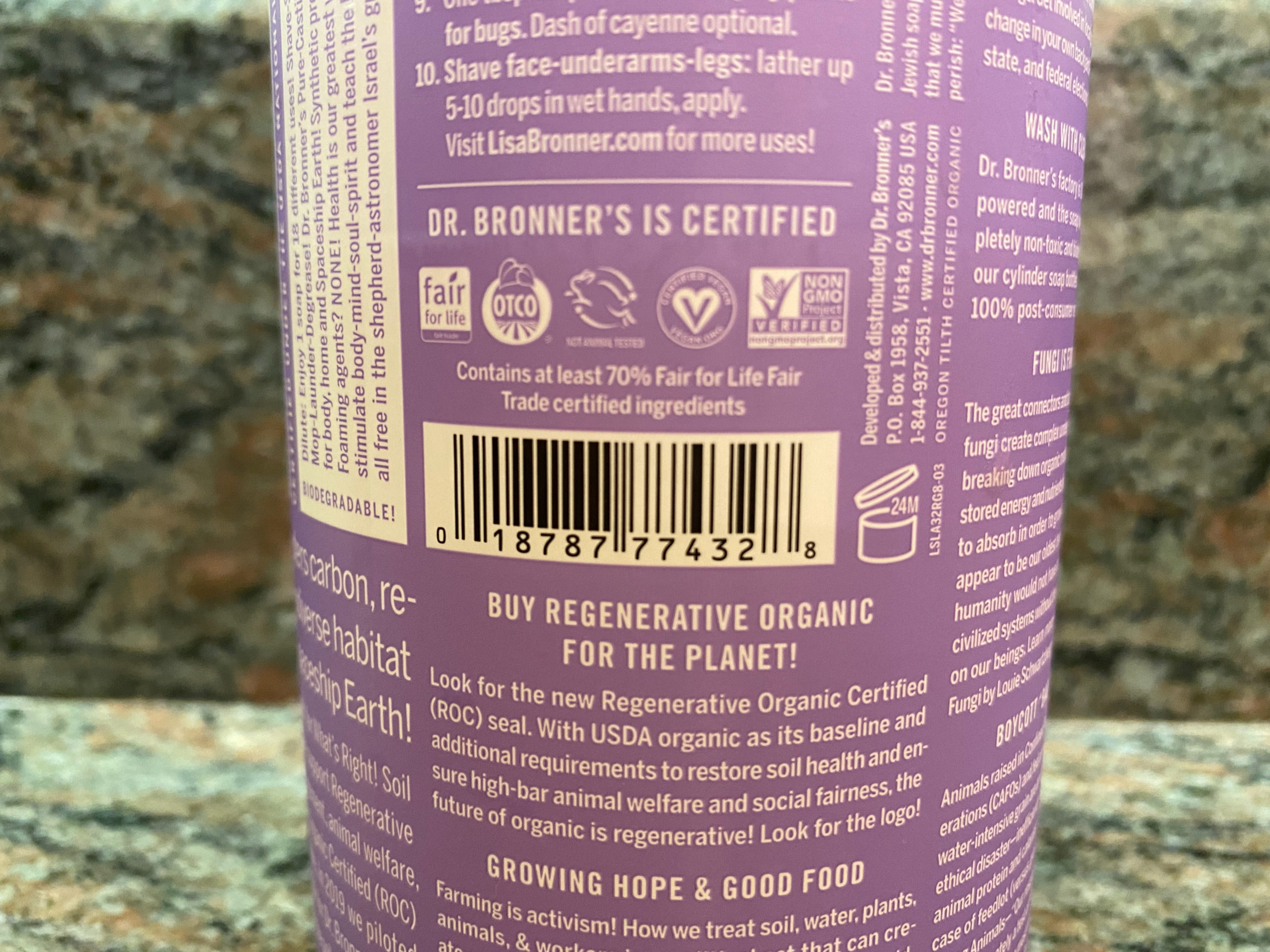
For resources and guides to help you shop for environmentally safe and friendly cleaning and home products, see Green That Life posts on: safe cleaning products; biodegradable and compostable products; and PFAS (“Forever Chemicals”), a class of chemicals that is found in nearly every product and material.
Fashion and Personal Care Certifications
- The Better Cotton Initiative (BCI) promotes better environmental and labor standards in cotton farming and practices. The BCI logo, or “On-Product Mark,” on packaging means that you’re buying a majority cotton product from a retailer or brand that is committed to sourcing Better Cotton and investing in BCI Farmers.
- The COSMOS-standard covers certifications of both organic and natural ingredients in cosmetic brands. A full list of their certified products can be found here.
- Global Organic Textile Standard (GOTS) was developed by leading standard setters to define world-wide recognized requirements for organic textiles. The GOTS site includes a searchable database of retail shops selling certified products and a terrific video that explains the GOTS certification process and the importance of considering the entire supply chain in making sustainable fashion choices.
Food-related Certifications
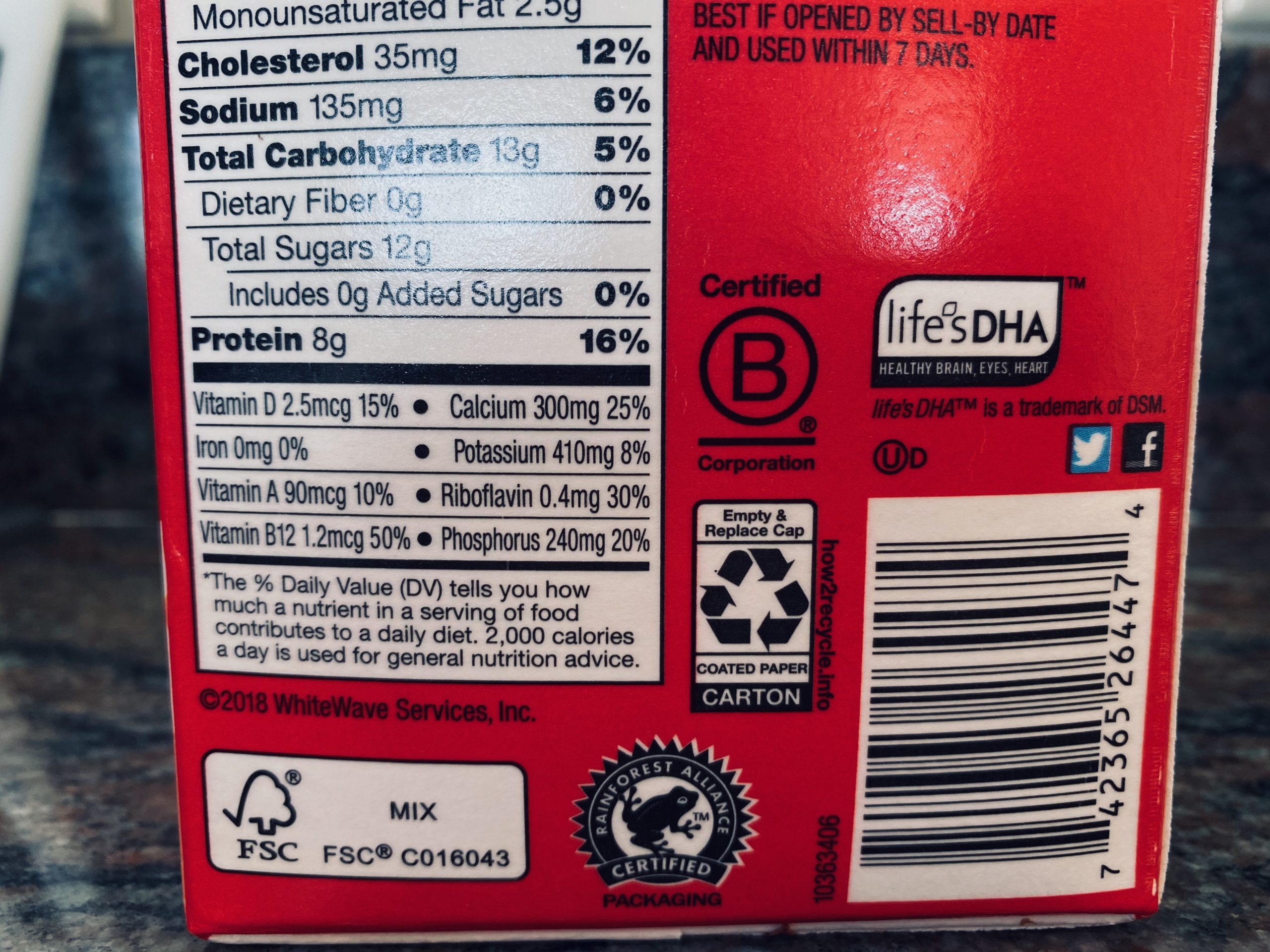
- Non-GMO Project Verified is North America’s most trusted third-party verification for non-GMO food and products. You can search their database for verified products or retailers.
- USDA Certified Organic is a government-backed certification system for produce and food products that have been produced without the use of pesticides, synthetic fertilizers, irradiation, or genetic engineering techniques.
- The Rainforest Alliance certification seal means that the product (or a specified ingredient) was produced by farmers, foresters, and/or companies working together to create a world where people and nature thrive in harmony. Check out their full list of certified products here.
- Regenerative Organic Certified™ (ROC) is a certification label for food, fiber, and personal care ingredients. You can shop their site for ROC-certified products.
Look at the Big Picture: Green vs Greenwashed Advertising
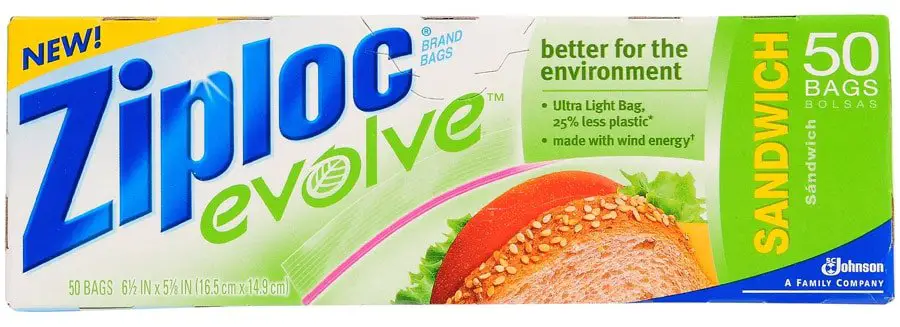
Don’t be fooled by product advertising with nature-based themes and slogans. Simply because an ad displays fluffy animals or a beautiful landscape doesn’t mean it’s green.
Also, consider the entire product. How green, for example, are bamboo utensils that are packaged in multiple layers of plastic packaging? Or snack bags made with “25% less plastic” but they’re still single-use plastic items designed to perpetuate our convenience culture?
Learn the Greenwash Lingo
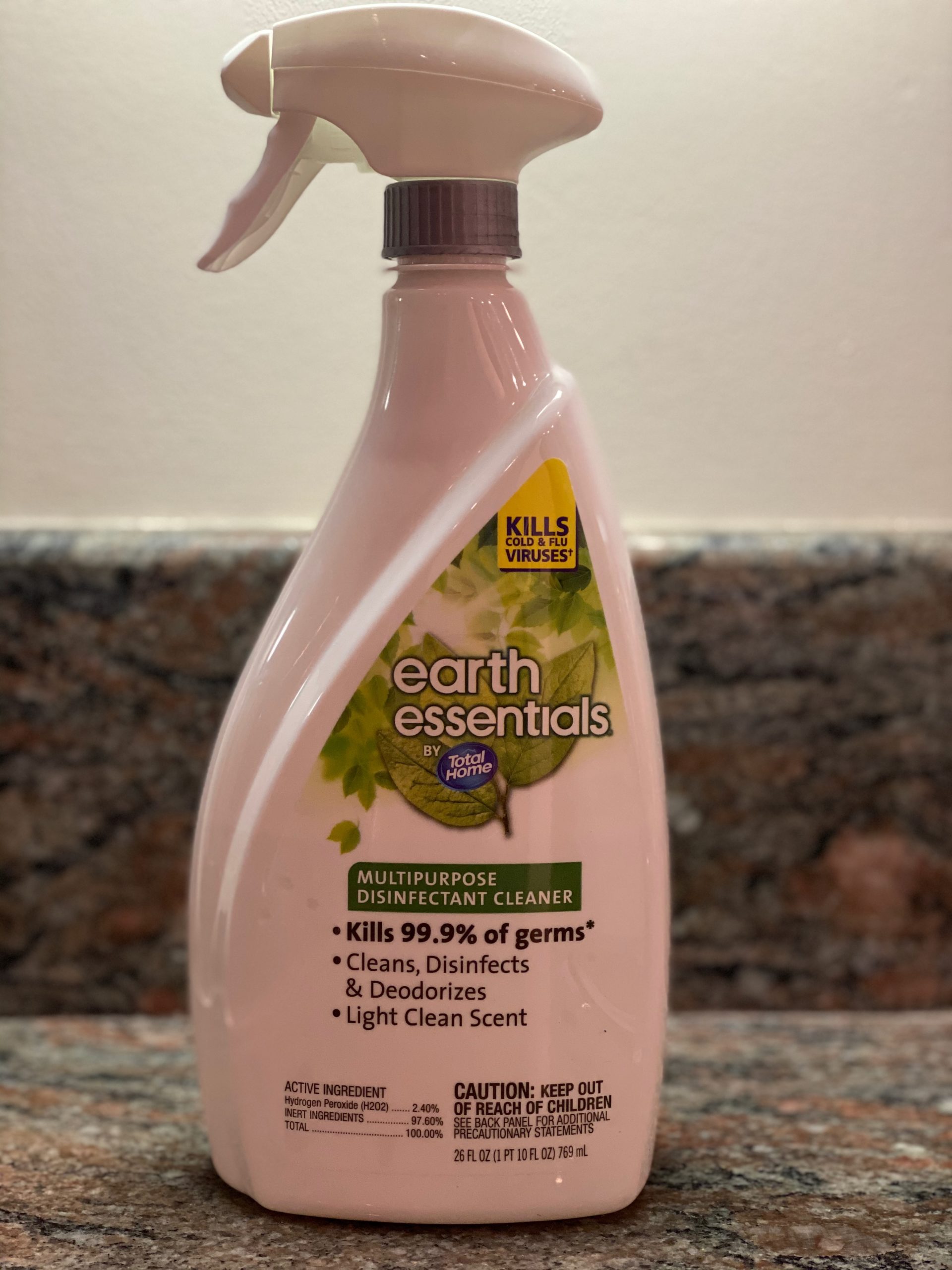
Your greenwash antennae should be up when you see products with ambiguous descriptive labels such as “eco-friendly,” “biodegradable,” “all-natural,” “ethical,” or “healthy.” A product that implies it’s natural with vague wording (“earth essentials”) yet includes toxic chemicals is probably not earth-friendly!
Unsubstantiated and vague claims are misleading at best, deliberately false, at worst. Check products for third-party certifications and take a look at ingredients, when necessary.
Buy Less!
Here’s a perfect solution to avoid being duped into buying a greenwashed product: buy less stuff! (You’ll also save some money.) Reuse what you already own or make what you need yourself.
One simple idea is to make your own cleaning products, using a minimum number of natural ingredients. Or, compost unwanted food to create a natural fertilizer for your yard and plantings.
Learn More
Pick up a book on environmental and sustainability issues. You’ll have a greater appreciation for the need to shop sustainably after reading about the destruction of our planet and the escalating climate crisis. For a complete list of suggested books related to climate change, waste reduction, conservation, and more, visit Green That Life’s Best Environmental Books page.
Why do Companies Greenwash?
Now that you know what is greenwashing, the next question that might come to mind is, why do companies greenwash? What’s in it for them? The main reason is that you, the consumer, demand a sustainable product that’s made sustainably.
In fact, most of us want to do the right thing for our planet. A recent Nielsen poll reveals that among the 66% of global respondents willing to pay more for a green product, over 50% of them are influenced by key sustainability factors, including environmentally friendly business practices, natural and/or organic ingredients, and a commitment to social values.
Businesses are responding accordingly to this growing consumer demand for sustainable products and practices. To be sure, companies must adjust to new regulatory requirements, but the main reason for their strategy to at least appear sustainable is that it’s good for their bottom line. And if businesses recognize the need to prioritize sustainability it means that they’re on notice to adapt or risk losing business.
We’ve made progress since Westerveld first coined the term. Some will continue their attempts to obfuscate, but the general trend is in the right direction — toward more environmentally friendly business practices. What can you do to keep the momentum going and the pressure on? First, be an informed consumer, and second, show your commitment to sustainability by purchasing only sustainable products.

